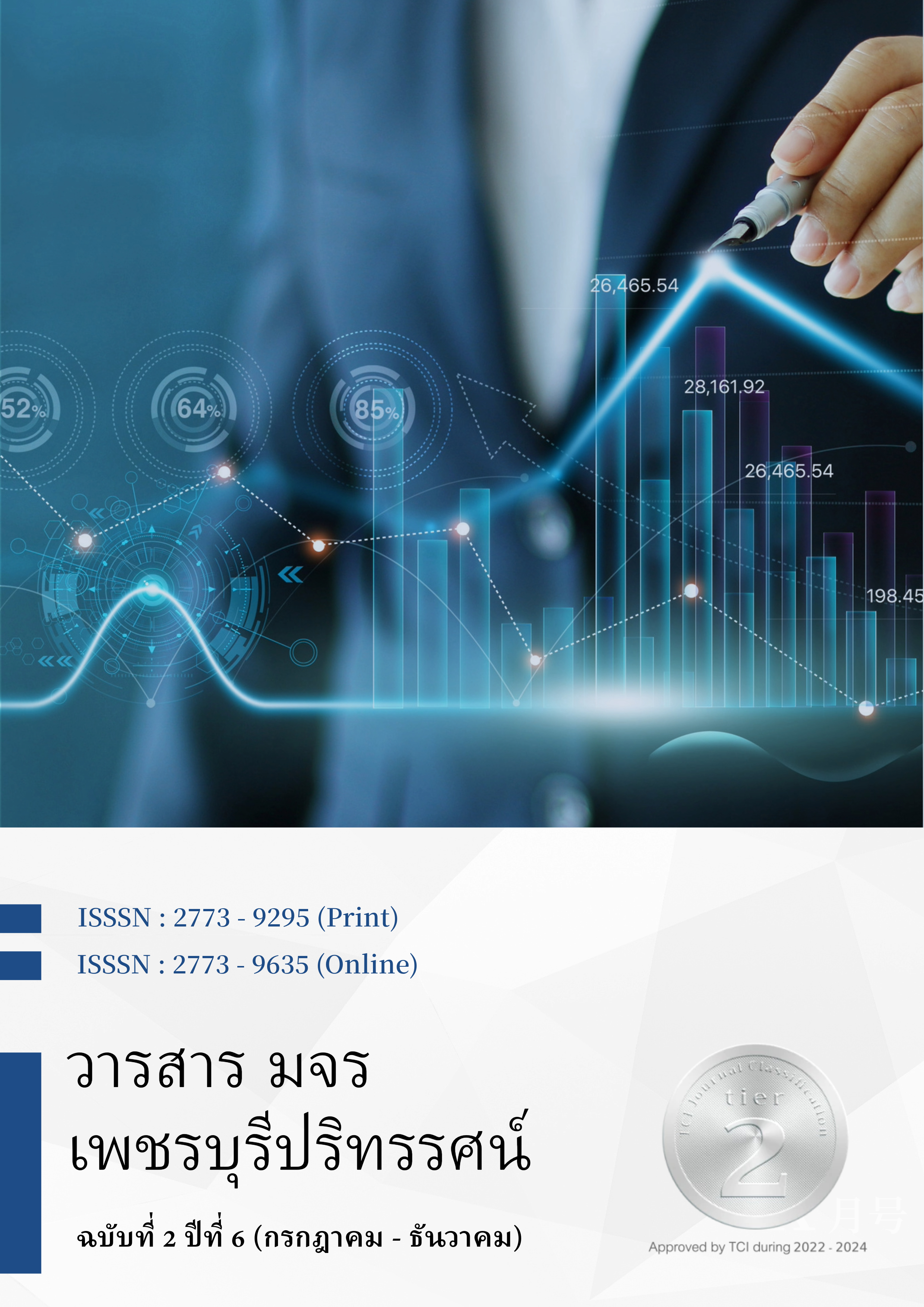Development of Learning Achievement in Development of Learning Achievement in Social Studies the 5E’s of Inquiry-Based Learning of Students in Primary Educational Level
Main Article Content
Abstract
The objectives of this research were to develop: 1) a teaching process by using the 5 E's of inquiry-based learning method (5E) for the Grade 1 students at Suwanrangsarit Wittayalai School studying the topic on spending money worthily buying goods and services, Economics Strand in the learning area of Social Studies, Religion and Culture, with efficient criteria at 80/80, 2) the learning achievement of the Grade 1 students at Suwanrangsarit Wittayalai School studying the topic on spending money worthily buying goods and services, Economics Strand in the learning area of Social Studies, Religion and Culture, and 3) the ability in inquiry learning of the Grade 1 students studying through the 5 E's of inquiry-based learning (5E). The target group consisted of the Grade 1 students in the academic year 2022. The research tools consisted of pre-test, post-test, and an assessment form for observing the inquiry learning behavior. The data were analyzed by using descriptive statistics, consisting of frequency, percentage, arithmetic mean, and standard deviation, and inference statistics, consisting of the IOC for determining the content validity of each item.
The research results were as follows:
- Was efficient according to the 80/80 criterion with a statistical significance at the 05 level, conforming with the hypothesis.
- Through the 5 E's of inquiry-based learning (5E), existing after studying was higher than that existing before studying with a statistical significance at the level of 05, conforming with the set hypothesis.
- Through the 5 E's of inquiry-based learning (5E), had the inquiry learning behavior at a good level with an average mean at 93.
Article Details

This work is licensed under a Creative Commons Attribution-NonCommercial-NoDerivatives 4.0 International License.
References
กระทรวงศึกษาธิการ. (2542). พระราชบัญญัติการศึกษาแห่งชาติ พ.ศ.2542 และที่แก้ไขเพิ่มเติม (ฉบับที่ 2) พ.ศ.2545 พร้อมกฎกระทรวงที่เกี่ยวข้อง และพระราชบัญญัติการศึกษาภาคบังคับ พ.ศ.2545. กรุงเทพมหานคร : กระทรวงศึกษาธิการ.
จุไรรัตน์ คุรุโคตร และคณะ. (2560). การจัดการทรัพยากรโดยใช้หลักเศรษฐศาสตร์.มหาวิทยาลัย มหาสารคาม/มหาสารคาม.
ณัฐกรณ์ ดําชะอม. (2553). ผลของการจัดการเรียนรูดวยกระบวนการสืบเสาะหาความรูแบบ 5Eและวิธิีการทางประวัติศาสตร์ของนักเรียนชั้นมัธยมศึกษาปที่ 1 ที่มีต่อผลสัมฤทธิ์ทางการเรียนประวัติศาสตร์ และการคิดอย่างมีวิจารณญาณ. มหาวิทยาลัยศรีนครินทรวิโรฒ/นครนายก.
นุชนาท สิงหา. (2555). ผลการใช้กระบวนการสืบเสาะหาความรู้แบบ 5E ร่วมกับเทคนิค การจัดแผนผังมโนทัศน์เรื่องไฟฟ้าเคมี ที่มีต่อความสามารถในการคิดวิเคราะห์ และผลสัมฤทธิ์ทางการเรียนของนักเรียนชั้นมัธยมศึกษาปีที่ 5. วิทยานิพนธ์ กศ.ม. พิษณุโลก: มหาวิทยาลัยนเรศวร
ปิลันญา วงศ์บุญ. (2550). การศึกษาคุณลักษณะใฝ่รู้ใฝ่เรียนของนักเรียนช่วงชั้นที่ 3 โรงเรียนยอแซฟอุปถัมภ์. มหาวิทยาลัยศรีนครินทรวิโรฒ/นครนายก.
พุทธิพงษ์ ศุภมัสดุอังกูร. (2559). การพัฒนาผลสัมฤทธิ์ทางการเรียนและความสามารถในการคิดวิเคราะห์เรื่องภัยพิบัติทางธรรมชาติของนักเรียนชั้นมัธยมศึกษาปีที่ 5 ด้วยการจัดการเรียนรู้ แบบวัฏจักรการสืบเสาะหาความรู้ (5E). กรุงเทพฯ : มหาวิทยาลัยศิลปากร.วารสารวิชาการ Veridian E-Journal ฉบับภาษาไทย สาขามนุษยศาสตร์สังคมศาสตร์ และศิลปะ, 9(3).
มณฑิรา ประดิษฐ์อารีกุล. (2560). การพัฒนาบทเรียนบนเว็บโดยกระบวนการสืบเสาะหาความรู้ตามวัฎจักร 5 ขั้น (5E) ที่ส่งเสริมการคิดวิเคราะห์และผลสัมฤทธิ์ทางการเรียนกลุ่มสาระการเรียนรู้วิทยาศาสตร์ สำหรับนักเรียนชั้นประถมศึกษาปีที่ 5. มหาวิทยาลัยราชภัฏมหาสารคาม/มหาสารคาม.
สถาบันส่งเสริมการสอนวิทยาศาสตร์และเทคโนโลยี. (2546). การจัดสาระการเรียนรู้. กลุ่มวิทยาศาสตร์หลักสูตรการศึกษาขั้นพื้นฐาน. กรุงเทพฯ: สถาบันส่งเสริมการสอน.
สาริศา บุญแจ่ม และคณะ. (2558). การจัดการเรียนรู้แบบการสืบเสาะหาความรู้ 5 ขั้น (5E). มหาวิทยาลัยราชภัฏนครศรีธรรมราช/นครศรีธรรมราช.
อาดีละห์ เจ๊ะแม. (2559). ผลของการจัดการเรียนรู้โดยการสืบเสาะหาความรู้ (5Es) ที่มีต่อความเข้าใจธรรมชาติของวิทยาศาสตร์ ผลสัมฤทธิ์ทางการเรียนและเจตคติต่อวิทยาศาสตร์ของนักเรียนชั้นประถมศึกษาปีที่ 6. มหาวิทยาลัยนราธิวาสราชนครินทร์/นราธิวาส.
อาร์ม โพธิ์พัฒน์. (2550). การศึกษาผลสัมฤทธิ์ทางวิทยาศาสตร์และความสามารถในการคิดวิเคราะห์ของนักเรียนชั้นมัธยมศึกษาปีที่ 3 ที่ได้รับการสอนโดยใช้ชุดกิจกรรมการเขียนผังมโนมติ. ปริญญานิพนธ์ กศ.ม. กรุงเทพฯ: มหาวิทยาลัยศรีนครินทรวิโรฒ.
Ausubel, David P. (1968). Educational Psycological : A Cognitive View. New York : Holt Renechart and Winston, Inc.
Novak J.D.; & Gowin D.B. (1984). Leaning How to Learn. London: Cambridge University Press.


